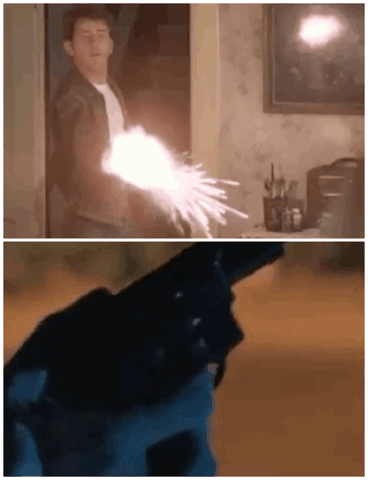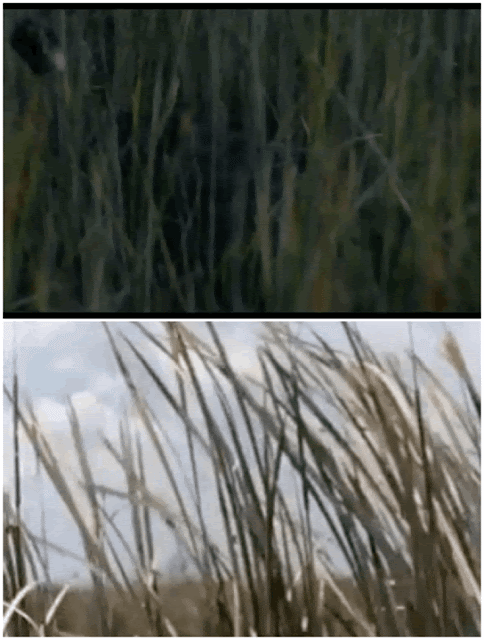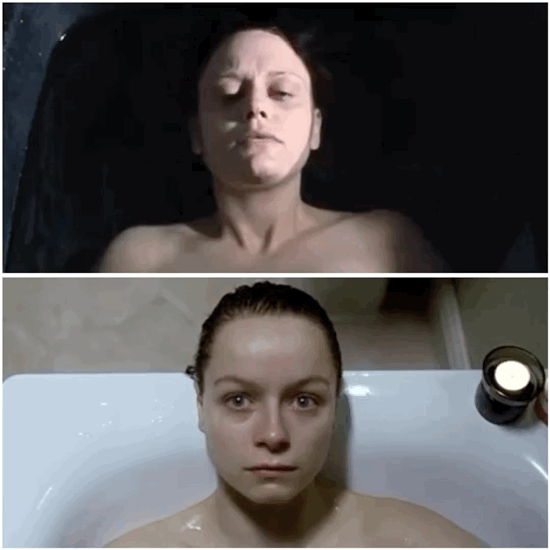This was originally published for cutprintfilm.com back in March of 2015. But since the site/publication has apparently vanished - I'm posting it here with a few updates. Enjoy...
Normally I'd roll my eyes at someone making a film about the Dominique Strauss-Kahn case for fear that it would come off as either pandering or opportunistic (there was a lackluster episode of Law & Order: SVU that was loosely based on the Kahn/Diallo case). But Abel Ferrara is someone who knows about scummy people. I'm willing to hear what he has to say about this. From Harvey Keitel in Bad Lieutenant to Chris Penn in The Funeral, Ferrara has crafted some majorly dysfunctional/fucked-up characters. Dominique fits in seamlessly within the cinema of Abel Ferrara.
The Dominique Strauss-Kahn case was also very much a New York
City story and Abel Ferrara is an unofficial representative/voice of NYC (75%
of his films are set in the big apple). If anything, this film serves as two
giant middle fingers, courtesy of the people of New York City, to the
privileged/entitled Kahn who got away Scot-free. And given Gerard Depardieu's
current personal beef with his homeland of France, I imagine it didn't take
much convincing for him to take part in a film like this.
While Welcome To New York is obviously inspired by very real events, it's only loosely based in the same way Gus Van Sant's Last Days was loosely based on the (real) last days of Kurt Cobain (names are changed, speculations are made, etc).
In the film, Gerard Depardieu plays “Devereaux” - a French politician (like Strauss-Kahn) whose in New York City for 24 hours to visit his soon-to-be married daughter and to have sex with as many prostitutes as possible before his departure back to France. When orgies and threesomes don’t seem to be enough to please Devereaux, he forces himself on a nameless hotel maid who just so happened to enter the room at the wrong time (a few hours later he's arrested and booked for rape). For the rest of the film Ferrara explores the judicial system that surrounds the case as well as the strained relationship between Deveraux and his no-nonsense wife “Simone” (Jacqueline Bisset). Welcome To New York is also very much a post-”Occupy Wall Street” story as we see the special treatment wealthy people get when they stand trial for a serious crime. Although Devereaux is charged with rape and has to spend a night in jail, he eventually gets to stay on house arrest in a swanky luxury suite. Seem fair to you?
Between The Blackout (1997) & 4:44 – Last Day
On Earth (2011), Ferrara's work has become quietly experimental in terms of
editing (Napoli Napoli Napoli), structure (New Rose Hotel) and
even in some of the performances (Forest Whitaker in Mary). At first
glance one might find Welcome To New York to be more of a
straightforward film but just beneath the surface there's quite a bit of
experimentation going on. The chemistry/interactions between Depardieu &
Bisset come off incredibly improvised (mostly in a good way) rather than
scripted. There's also a slightly playful sequence towards the end of the film
that looks more like something out a post-Tree of Life Terrence Malick
film rather than a Ferrara film (voice-over narration and all).
My only concern with Welcome To New York is that no
matter how much of an obnoxious piece of shit spoiled brat Devereaux is, I
still get the sense that Ferrara wants us to have some kind of
understanding and/or sympathy (although I could be wrong). Ferrara gives us a
polarizing/introspective scene where Devereaux is explaining himself to a
psychiatrist and at the start of the film he's even referred to as the
“protagonist”. Now...protagonist definitely doesn’t mean “the good guy”, but 9
times out of 10 the protagonist is in fact the good guy in a story. Using a
term that's often associated with a “good guy” to describe a person like
Devereaux/Strauss-Kahn (when there are so many other more accurate/less
flattering labels to use) is a little problematic in my book. But at the end of
the day it would take a special kind of sociopath to see Devereaux's side.
For those of you who weren’t satisfied with the exploration
of privilege & greed in Scorsese's The Wolf Of Wall Street, Welcome
To New York might just satisfy the needs that Wolf didn’t fulfill
(it certainly did for me as I found the tone of Wolf to be incredibly
irresponsible).
Welcome To New York also has a transparent/existential
quality in that certain aspects of this film mirror Gerard Depardieu's real
life. At the start of the film we get a quick scene of a fictionalized
interview where Gerard plays himself and talks about what drew him to portray
“Devereaux”/Strauss-Kahn. Derpardieu also seems to have no shame in his
glutenous qualities in real life. Not only does he seem to not care about his
weight gain over the years, but just recently he bragged to the press about the
insane amount of wine he drinks on a daily basis (and I don’t mean to bring up
his weight to be petty or to poke fun. I'm overweight myself. But Gerard
Depardieu's transition from hunky french leading man to morbidly obese veteran
actor is a bit troubling).
In the same way we could never imagine any other actor besides Dennis Hopper portraying “Frank Booth” in Blue Velvet, I can't picture another actor playing the role of Devereaux in Welcome To New York.
Oh and side note - this is the best performance Jacqueline Bisset has given in years. She easily joins the ranks of Chris Penn (The Funeral), Forest Whitaker (Mary) & Harvey Keitel (Bad Lieutenant) in the pantheon of great Abel Ferrara performances.
Not only will hardcore Abel Ferrara fans enjoy this, but it's
also the perfect film for Ferrara novices that are looking to get familiar with
his filmography.































































